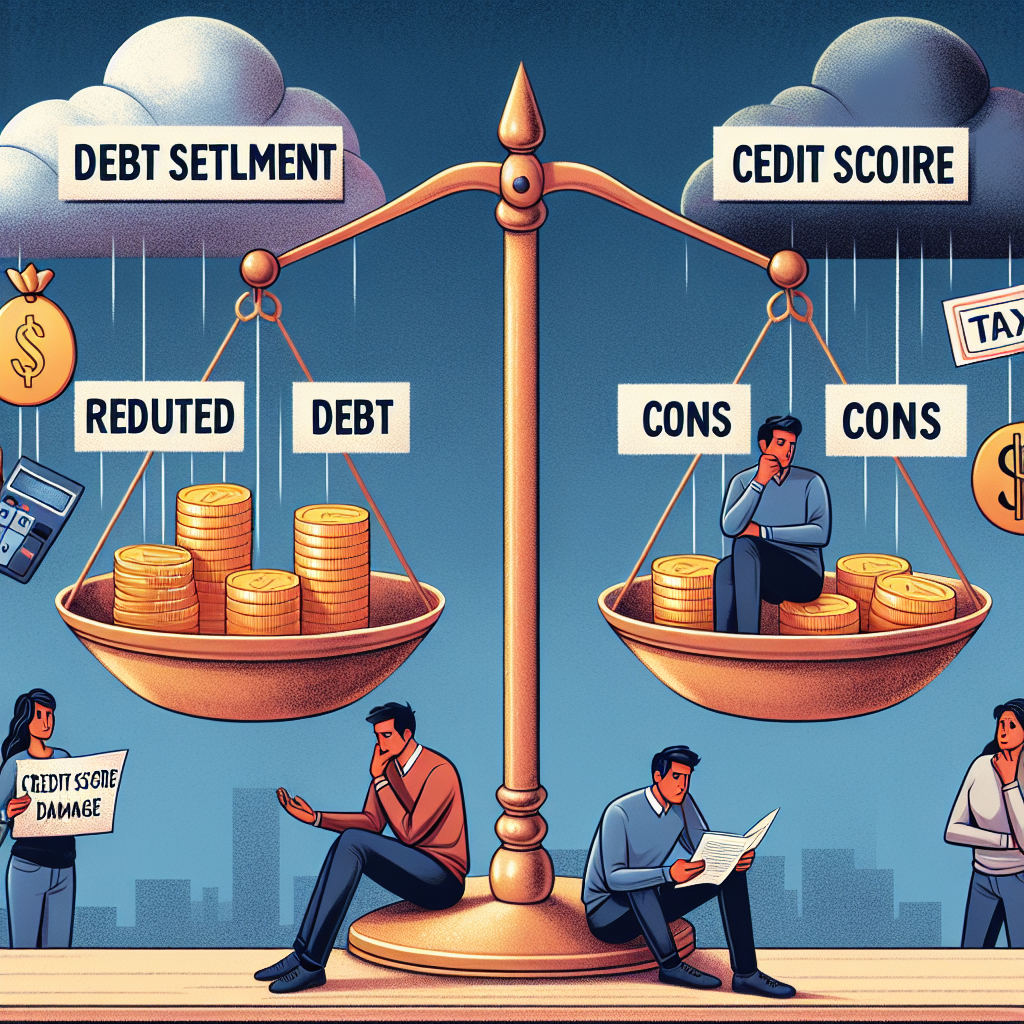Debt can be a burdensome companion for many people, affecting various aspects of one’s financial health and overall well-being. As individuals search for effective ways to manage and reduce their debt, debt settlement often emerges as a potential solution. However, like any financial decision, it requires careful consideration and understanding. This article delves into whether debt settlement is a good option by examining the process, weighing its pros and cons, comparing it to other debt relief strategies, and identifying key considerations before pursuing this path.
Understanding the Debt Settlement Process
Debt settlement involves negotiating with creditors to pay a lump sum that is typically less than the full amount owed. The process usually begins when an individual reaches out to a debt settlement company or attempts negotiation on their own. The debtor saves money over time to build the necessary lump sum for offering to creditors. When successful, creditors agree to accept the reduced amount, often due to the risk of receiving nothing if the debtor files for bankruptcy.
Debt settlement is not a quick fix and requires patience. Typically, the process can take anywhere from two to four years. During this period, debtors may stop making payments on their outstanding debts, which can negatively affect credit scores. However, the potential outcome of settling the debt for a lower amount could eventually outweigh these temporary setbacks. It’s essential to consider the impact on credit ratings and financial health before deciding.
For those considering this approach, the Federal Trade Commission offers comprehensive guidelines on dealing with debt settlement companies. It’s crucial to research and understand the fees involved, as these can significantly impact the financial benefits of settlement. Ensuring the company is reputable and compliant with federal and state regulations is paramount for a successful debt settlement process.
Pros and Cons of Choosing Debt Settlement
One of the primary advantages of debt settlement is the potential to pay significantly less than the amount owed, providing relief from overwhelming debt. It’s an alternative to declaring bankruptcy, which can have more severe and lasting impacts on one’s financial situation. Once settlements are reached, individuals can work towards rebuilding their credit and financial stability.
However, there are notable downsides to consider. The most immediate effect of entering into a debt settlement program is the potential damage to one’s credit score. Since the debtor typically stops making regular payments during negotiations, missed payments can remain on a credit report for up to seven years. Additionally, forgiven debt might be considered taxable income, adding another layer of complexity to this decision.
Moreover, not all creditors are willing to negotiate settlements. There is also the risk of being sued by creditors for the unpaid amounts during the negotiation period. As a result, it’s essential to weigh these factors against the benefits. Articles on the pros and cons of debt settlement can provide further insight into making an informed decision.
Comparing Debt Settlement to Other Strategies
When considering debt settlement, it’s beneficial to compare it with other debt relief strategies, such as debt consolidation, credit counseling, and bankruptcy. Debt consolidation involves combining multiple debts into a single loan with a lower interest rate, which simplifies payments but doesn’t reduce the principal amount. This can be less damaging to one’s credit score compared to debt settlement.
Credit counseling offers a structured approach to managing debt by helping individuals budget and negotiate lower interest rates with creditors. While it doesn’t reduce the actual debt, it helps manage payments more effectively. This route may have a less negative impact on credit scores and can provide educational resources for better financial management in the future.
Bankruptcy, on the other hand, can discharge most debts and give a fresh financial start but comes with long-term consequences, such as a significant drop in credit score and public record of the bankruptcy. Nolo provides a comprehensive look at how bankruptcy compares to other options. Each strategy has its pros and cons, making it crucial to evaluate one’s financial situation and goals before making a decision.
Key Considerations Before Settling Debt
Before opting for debt settlement, individuals should assess their current financial situation in detail. This involves calculating the total amount of debt, understanding the terms and conditions of each debt, and identifying any potential legal implications. Consulting with a financial advisor or attorney can provide additional clarity and might uncover alternatives that were previously overlooked.
Understanding the potential tax implications is another critical factor. Settled debts are typically considered income by the IRS, and individuals may need to pay taxes on the forgiven amount unless they qualify for insolvency exceptions. Therefore, it’s advisable to consult with a tax professional to understand how this could affect one’s tax situation.
Lastly, it’s important to consider the emotional and psychological aspects of debt settlement. The process can be stressful and requires a commitment to save and adhere to a rigorous financial plan. Reviewing case studies and testimonials on our debt management page can provide encouragement and insight into what to expect during this journey.
Deciding whether debt settlement is a good option involves a careful evaluation of personal financial circumstances, understanding the process and its implications, and comparing it to other available strategies. While it offers a pathway out of overwhelming debt, it comes with its own set of challenges and risks. By weighing the pros and cons, and considering key factors such as tax implications and potential impacts on credit scores, individuals can make a more informed decision. For more in-depth guidance, explore our articles on financial planning, credit score management, and debt relief strategies to help navigate the complexities of managing debt effectively.
Emergency debt help servicesHow to qualify for a consumer proposalAffordable debt repayment plansRelevant LinkRelevant LinkRelevant Link
